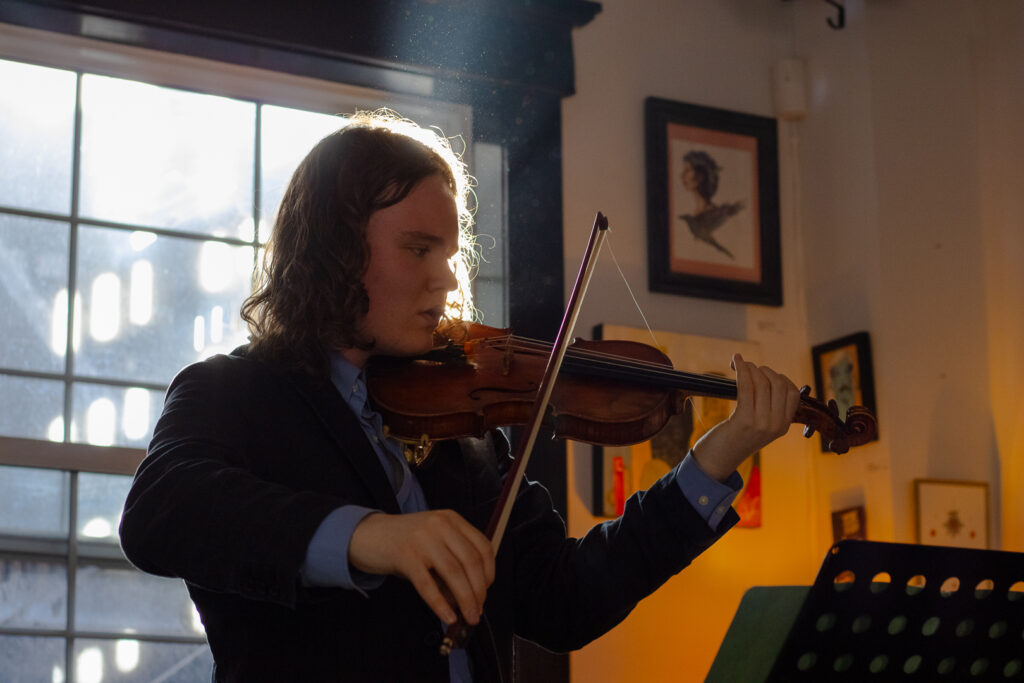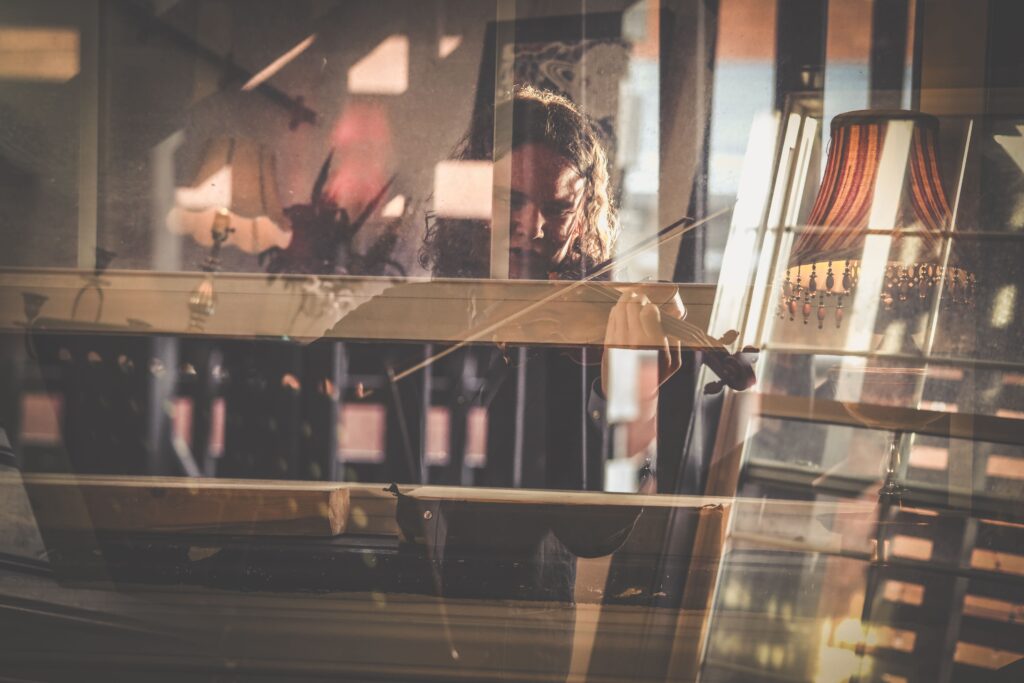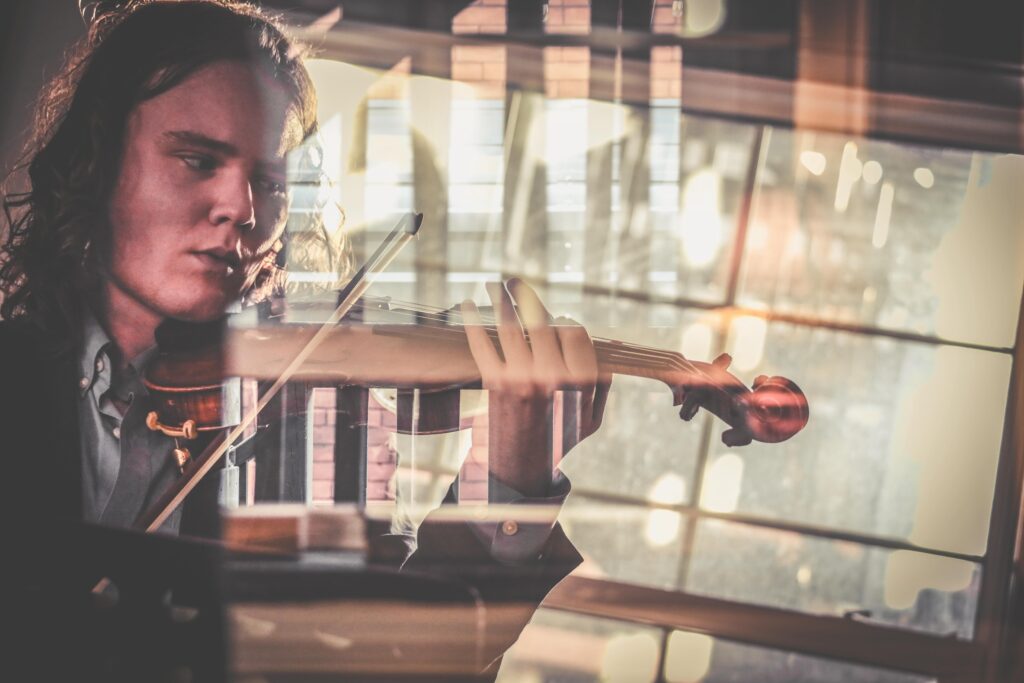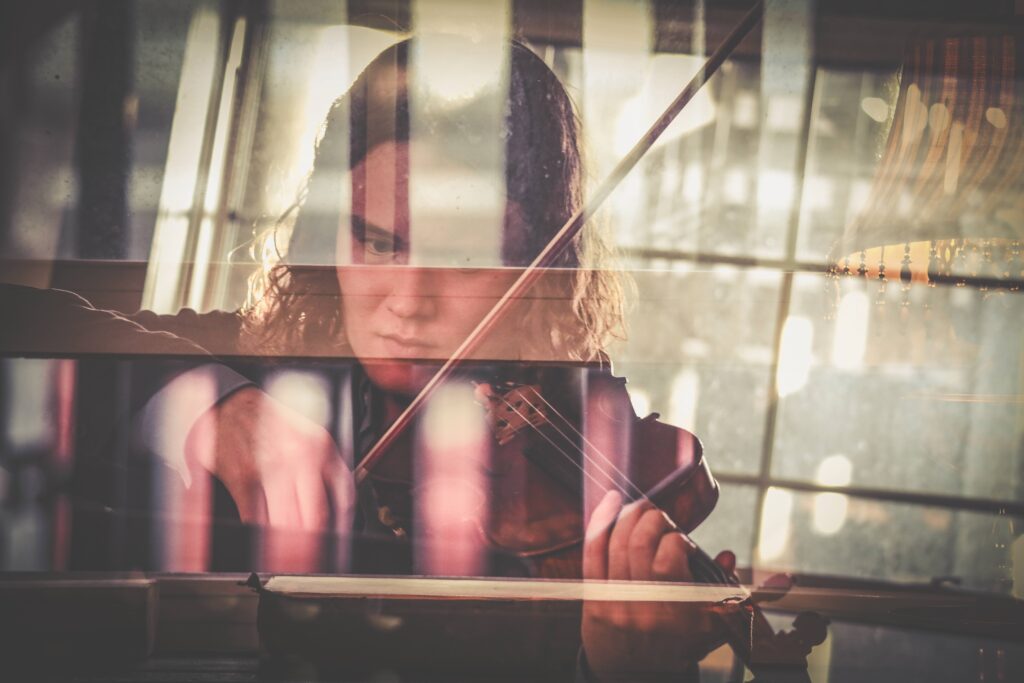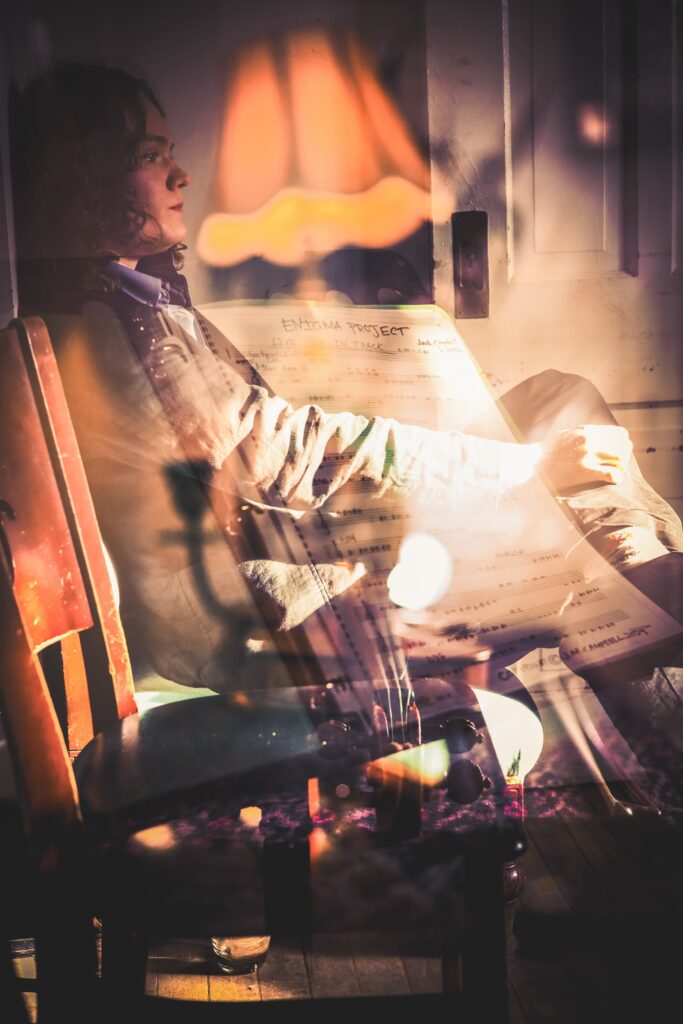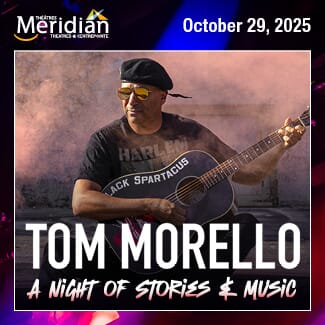By Emma Schuster
In the airy backroom of Art House Cafe, light pours into the room as a mixture of chairs circle a speaker projecting the ominous, echoing sounds of the Bombe machine.
For much of his life, Jack Campbell has been fascinated with the scientists who commanded their imagination, creative potential, and expert knowledge to end the Second World War.
The enigma machine had allowed the Nazis to dominate for much of the war, encrypting war plans and strategies so they could be safely transmitted between troops without alerting the Allies. That all changed when a group of scientists — led by the father of modern computer science, Alan Turing — created the Bombe machine. This massive, noisy, and complex device could crack every iteration of the enigma machine’s settings in 20 minutes. It is estimated that this invention shortened the war by two years and saved at least 14 million lives.
Using his understanding of music and mathematics, Campbell has now created an artistic manifestation of the inseparable relationship between arts and sciences by bringing these two machines to life in his 50-minute violin piece.
For the third stop on his Canadian Sounding Bombe tour, Campbell came to Ottawa to perform his violin and found-sound composition that was choreographed with a stop watch over a five-year writing process. Using scientific and linguistic data to create his algorithm, Campbell used the Bombe decryption machine to create a piece that demonstrated the breathtaking creativity of the minds that won the war.
“Written in collaboration with the National Museum of Computing in Bletchley, UK, this piece uses the beauty of music to celebrate scientific evolution and revolution and the human spirit’s resistance of evil and tyranny.”—Jack Campbell
Sounding Bombe is a violin performance created by using musical versions of the enigma and Bombe machines designed by Campbell himself, that encrypt and subsequently decrypt the song “Molly Malone” over the course of the performance — allegedly Alan Turing’s favourite song.
The piece begins with harsh, plucked staccato notes while the Bombe machine revs up.
Sounding like laboured breathing, the ambient sounds of the machine and metallic thudding eventually revs itself up to a scream. As the machine comes in and out of rest periods, its sounds change between whirring and shockingly loud thudding, with clicking in between. The machine that won the war sounds much like war itself.
As Campbell’s violin moves out of staccato and into sustained notes, the decryption introduces chaos into the piece, releasing the tension wrapped up in the original morse code. Giving the piece length and depth, the Bombe unravels the music and stretches each note out, playing with all the possibilities of its doughy elasticity.
As the piece comes to a close and the final unencrypted version of “Molly Malone” comes to light, the piece tightens up, losing some of its shape and frivolity, to become a condensed and perfected message.
Although Campbell has performed this piece at Bletchley Park, the birthplace of the Bombe decoder, he says he doesn’t believe that music only belongs in one specific location. Calling his performance at Bletchley “truly one of the great honours of my life,” Campbell goes on to explain that his current tour will take him across the UK and Canada in both formal and experimental spaces, from grand cathedrals to people’s living rooms to intimate venues with deep community connections like Art House. Campbell says he hopes that the impact of the performance is just as important and memorable no matter the location.
Inside Art House there is a bit of irony in this impact, as the backroom of the building was completely enraptured in Campbell’s performance, while the front of house was none the wiser to what we were experiencing, even though they could hear the sounds of the violin — similar to how these stories may be forgotten in the humdrum of modern life.
In its creation, Campbell’s piece challenges us to reform our understanding of the world and remove ourselves from binary viewpoints. His work challenges us to be the most creative and imaginative versions of ourselves in order to solve global and personal problems.
“I believe everybody has a duty to use their creativity to benefit society and [breaking the enigma code] is perhaps the most profound example,” he says.
Campbell says he hopes that people are not only able to reflect on the past while listening to his work, but that it allows them to envision and work towards a more hopeful future.

